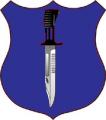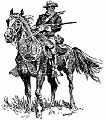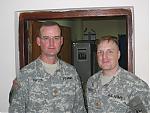Another thought on malaise.
I used to say Major was the most dangerous rank in the Army because that was the only rank at which one normally was unable to command (Platoon Leadership is a subst of command, IMHO, USMC has it right with their title of Platoon Commander).
Army officers tend to be Type A folks who want to call the shots or lead. When you are a staff guy, you don't get to lead; you just get to recommend to a leader, who accepts or rejects your recommendations. Maybe 90 days is the window of time that it takes for the "rejection" syndrome (recognition that you are not really calling the shots anymore) to set in.
Drawing on Eden's perspicacious analysis, we might say that in the days of a staff as information gathers, you could still be something of a leader. (This presupposes that leaders are folks who get other folks to do things.) You could go to subordinates and make them do something for you--give you info.
With the explosion of automated reporting of information (digitized terrain, Blue Force Tracking, GPS/SADL, LOGMOD, etc) now, rather than make people do things, staffers satisfy their leadership cravings by making databases do things (by setting up queries and filters).
Also by being the holder of a filtering role, a staffer may get to be something of the grey eminence behind a leader's decisonmaking process--since the staff briefs (provides information to) the commander, it is a decider at one remove. I think that staffers have always had a significant filtering function, but it is more obvious in a world where information gathering requires much less human intervention that previously was the case.















Bookmarks